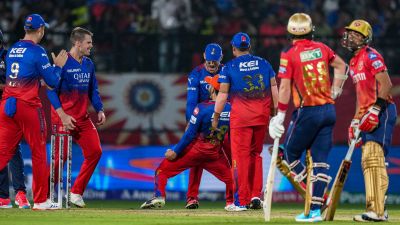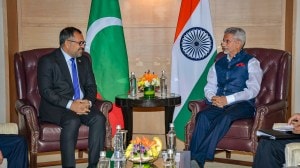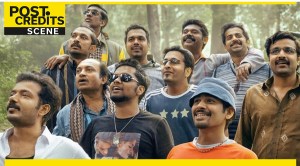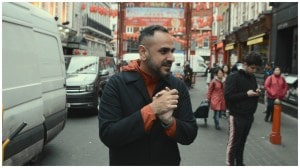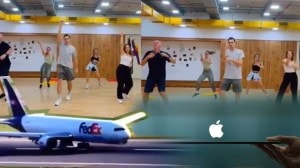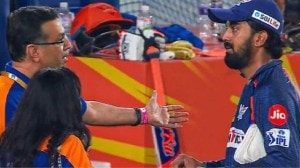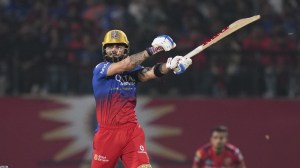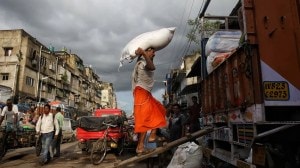- India
- International
2002 Gulberg massacre case: Trial over, verdict awaited
Special trial court sets next hearing on Monday, no date set for verdict, yet.
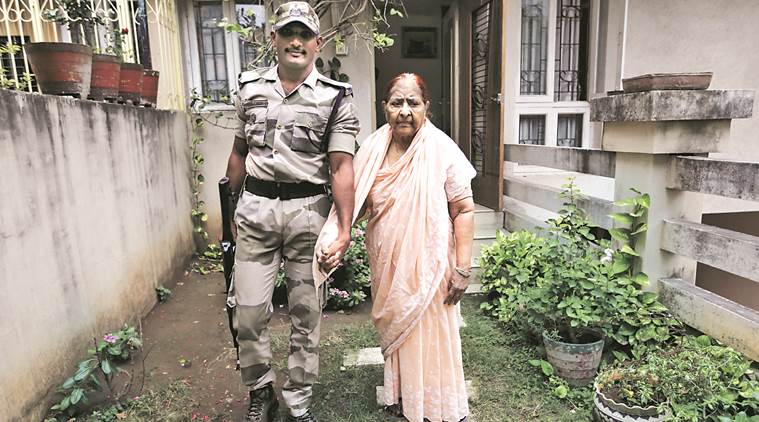 Zakia Jafri with a security guard provided by the government at her son’s house in Surat on September 15 . (Reuters)
Zakia Jafri with a security guard provided by the government at her son’s house in Surat on September 15 . (Reuters)
The trial of Gulberg Society Massacre after the 2002 post-Godhra riots was concluded on Tuesday, following completion of arguments by victims’ lawyer. Praying to hold all the accused guilty in the case, the victims’ lawyer sought harshest punishment for the accused. With this, the trial which began in 2009 has come to an end. The special trial court has kept the next hearing on Monday for some clarification and on that day, the date for order will be decided.
Earlier on Saturday, the prosecution, Supreme Court appointed-Special Investigation Team (SIT), concluded its argument, following the completion of arguments by the defence lawyers. Gulberg Society Massacre case is among the nine major riots cases which were further investigated by SIT. Sixty-nine persons were killed in Gulberg Society, including ex-Congress Parliamentarian Ahsan Jafri. Jafri’s widow, Zakia, has filed a case against the then Gujarat chief minister Narendra Modi and others for allegedly orchestrating the riots. The case was investigated by the SIT that gave the clean chit to Modi in 2012 while SIT’s report was upheld by a metropolitan magistrate only last year. Zakia then moved a petition in the High Court challenging the appeal, where the matter is pending.
[related-post]
There are a total of 66 accused in the massacre case. Out of them, four have died. The massacre occurred on February 28, 2002, a day after Godhra train carnage incident. Out of the nine cases, Naroda Patiya, Ode (two cases), Dipda Darwaja, Sardarpura, Prantij and Godhra train carnage cases have been decided by the courts and, except Prantij riots case, a large number of accused were convicted. Another riot case, Naroda Gam, is still under trial.
Appearing for the victims, lawyer S M Vora argued before Special Judge P B Desai that questions raised by the defence lawyers pointing at inconsistency and inaccuracies in the statements of witnesses should not be considered as “those who lost their loved ones in the genocide may not remember the exact details since they all were trying to save themselves and their kins”. He said that the court must take the background of the case into consideration since the local police tried to derail the investigation.
Vora pointed out that how the then police inspector K G Erda himself lodged the complaint and took up the investigation. He alleged that it was criminal negligence by Erda who “deliberately didn’t make any effort to identify the dead bodies of victims, neither he took any step to preserve the bodies for investigation, instead he allowed the bodies to decay”. Vora argued that the whole incident was part of a conspiracy to target Muslim as the mob kept shouting slogans to “kill people from the minority community”.

Vora also accused that SIT didn’t investigate the case properly and had the victims’ lawyers not got involved many of the accused, including Erda, would not have been made accused. However, Special Judge Desai objected to his claim, stating that this was not the right forum to accuse the SIT as the case was monitored by the Supreme Court.
Desai is the fourth judge who presided over the trial and who will ultimately be pronouncing the order.
Earlier in the case, defence lawyers had argued that the witnesses in this case had wrongly testified against the handful of accused out of a mob of thousands. The defence even alleged that “the so-called witnesses are robotic and gave statements as dictated by their lawyers and NGOs”.
The defence also raised questions on the credibility of star witnesses who were silent on private firing by Ahsan Jafri, which, according to defence lawyers, provoked the mob to attack. However, SIT lawyer R C Kodekar argued that “there was nothing special about private firing and not mentioning about it by the witnesses is not material in the case. What is material is that a large number of people had gathered outside the Gulberg society shouting provocative slogans against the minority community. The gathering of such a mob itself was part of a conspiracy which resulted into the massacre”.
May 10: Latest News
- 01
- 02
- 03
- 04
- 05


